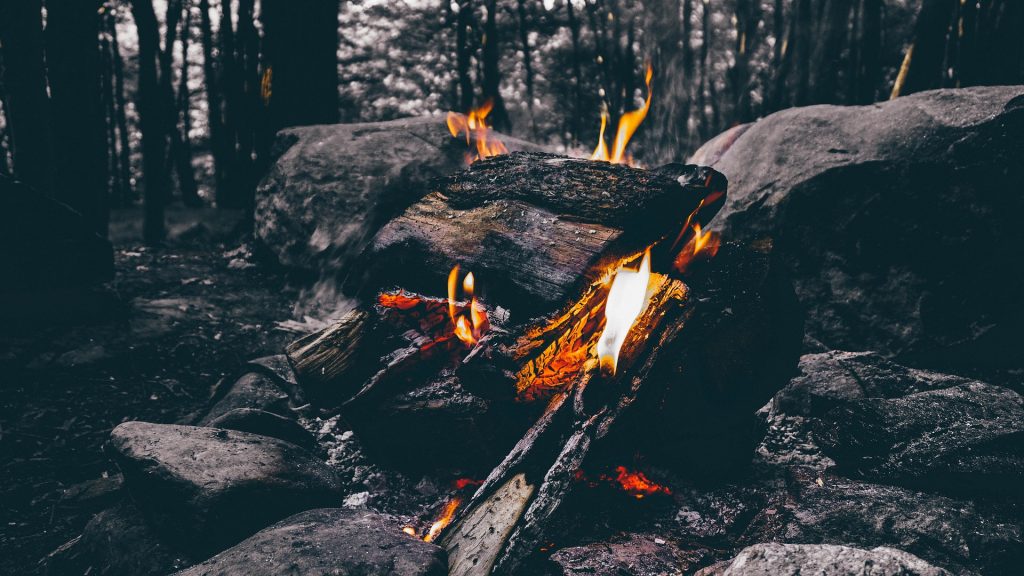
Fire is one of the most powerful forces on the planet, and many of us harness its awesome power many times in a summer when we go camping. Fire provides campers with a way to cook food, a source of heat, and light for when it gets dark. A camping trip isn’t really a camping trip without a proper fire. Fire must be respected at all times, however, as it’s one of the top summer dangers. Here are some fire safety tips for your summer camping experience.
Where to build your fire
You can’t just build a fire anywhere – not if you want to prevent forest fires and protect yourself and your belongings.
You should always build your fire on solid, level ground. You should clear the area of excess debris, and make sure the fire is at least 10 feet from your tent, hammock, or any shrubs, bushes, or trees. Don’t forget to look up, too. You don’t want vegetation hanging over your fire. Build a border for your fire with rocks, as this will prevent its spreading. Here’s a good guide to building, maintaining, and extinguishing a campfire.
Always have a way to put it out close by
You may think you have a campfire under control, but that’s a mistake. You never truly have fire under control. Winds can change, wood can shift, and before you know it the situation can get dicey. Always have either a supply of water, a large pile of dirt, or preferably both nearby to help tame fires that grow too large.
Keep anything on fire inside the fire ring
If it’s burning or just recently finished burning, it needs to go into the fire. This means that wooden matches, cigarettes, cigars, and anything with an ember or flame should never be thrown onto the ground. That’s how forest fires start. Unintentional and undetermined cause fires account for nearly 70% of outdoors fires in the US.
Of course, the exception here is lighters. Never throw an “empty” lighter into a fire. It may not be as empty as you think, and even if it is, it can explode.
Avoid accelerants
Throwing lighter fluid or gasoline on a fire will make it catch faster, and it will make it larger. But it will also make the fire more unpredictable. Avoid accelerants, opting instead for starter bricks/logs or one of these common household fire starters to help you get your fire going. You especially want to heed this warning if you are using your fire to cook.
Always put a fire out before you go to bed
Never think that a fire – even one that’s dying down – will just “go out on its own.” You should never leave a fire unattended, and you can’t very well tend a fire from your tent. You should put the fire out with dirt and/or water and then take a stick and stir the coals around a bit. This will let you see if there are any burning embers hiding. A fire that’s sufficiently put out will have no burning embers and will be wet and cold (it may still be smoking, but that’s not the same thing as actively burning).
Proper campfire safety isn’t just about protecting you and your family from damage to person and property – it’s important on a bigger scale. “Only you can prevent forest fires” isn’t just a saying – it’s true. You, and only you, are responsible for knowing and practicing proper fire safety. It’s irresponsible to build a fire without knowing how to properly construct it, tame it, and extinguish it.
